Interviews
‘Democratise Sanskrit, it’s the time for third Sanskrit revolution’
Sanskrit is the best weapon to wipe out the remnants of colonisation in Indian minds, says author and Sanskrit scholar Oscar Pujol

Oscar Pujol dedicated a lifetime to introducing the Sanskrit language to Spain and the world. He came to India in the 1970s to follow his love and found his destiny and birth purpose in Kashi (Varanasi), the much-celebrated spiritual destination in India’s Uttar Pradesh state. Oscar Pujol is a Spanish-Sanskrit scholar and author who came from Spain, the land of bullfighting, flamingo dancing, and football, and immersed himself in the cultural diversity of India as if it were a mission.
He studied Sanskrit at the Banaras Hindu University and published several books and translations from the Sanskrit classics and the two Sanskrit dictionaries: the Sanskrit-Catalan and the Sanskrit-Spanish. In 2002, he helped establish Casa Asia in Barcelona. He founded the Instituto Cervantes in New Delhi in 2007. He recently received the ‘Vani Foundation Distinguished Translator Award’ at the Jaipur Literature Festival for establishing a closer relationship between Sanskrit and Spanish languages through his works. He has previously held the post of director at the Cervantes Institute of New Delhi and Rio de Janeiro and was the director of Educational Programmes at Casa Asia. The books authored by Pujol include the first dictionary of Sanskrit to Catalan, a dictionary of Sanskrit to Spanish, and a book on the eminent Indian saint Shankaracharya’s philosophy and scriptures in Spanish. His latest translation of the Indian spiritual text Bhagavad Gita from Sanskrit to Spanish has been released under the name ‘La Bhagavad Gita’. In an interview with Dipin Damodharan, he speaks on several issues, ranging from the relevance of Sanskrit to the third Sanskrit revolution.
As for the common people, Sanskrit is still not a popular language. What is the reason to think that Sanskrit is still relevant?
Sanskrit is still relevant for many reasons. Not just for spiritual reasons. Sanskrit is the philosophy of science. It is the language of energy and vision. It is the language of medicine, astronomy, and astrology. It is the language of logic, politics, and morality. It is the language of Kamasastra (refers to the tradition of works on Kāma: Desire). Ultimately, it is the language of salvation.
There is no other country that knows the essence of the human spirit as India. The reason for that is Sanskrit. It is Sanskrit that made India the world leader. I believe that India is still a world leader, and I believe it will be the same in the future. Deviation from the Sanskrit tradition led to the downfall of India. But now many good things are happening. Many of the younger generations show interest in Sanskrit. Apart from India, this is evident in many countries, like the US and Mauritius.
Efforts should be made to protect the traditional scholars (Pandits) who consider Sanskrit their lifeblood. Only through them will this tradition continue. The government should provide more benefits to keep Sanskrit alive.
Sanskrit was the language that defined India. But why did Sanskrit lose its importance?
It happened for historical and political reasons. Sanskrit lost its political power. It is a big story. But remember that history has ups and downs. Let us not forget our heritage while embracing modernity. Unfortunate. That was what happened in the last 60–70 years. Do not be put off yet. The climate in the country is now for Sanskrit to regain its political power. Things need to be done to save the soul of India.
The third revolution should be to make Sanskrit global. It has to start from India itself; no one else can be the flag bearer of the third revolution
There is an argument often raised by critics of Sanskrit and Indian philosophies—that it is misogynistic and non-inclusive. How do you look at this?
Leave the accusations on their way. Here exists the vision of worshipping knowledge. It is beyond mere thought. ‘Inclusiveness’ is fundamentally a part of India’s philosophy. The problem came when they tried to imitate the West as an end. Eternal visions are beyond all colours. Everything is based on karma (actions).
Is learning Sanskrit difficult for common people?
Never. If I, who claim no Indian heritage, can do it, you all can easily. Central and federal governments can come up with various schemes to facilitate Sanskrit learning. If you want to understand the philosophies of India without confusion, I suggest learning Sanskrit. All translations and interpretations in other languages have their limitations. Don’t fall for the western thinking that so-called science is the pinnacle of knowledge. Meanwhile, don’t celebrate false pretensions based on Sanskrit itself. Western countries see the world as human-centred. But India’s visions are centred on life. That is what makes India the best country to lead the world. The power that makes India a world leader is never military. Rather, it is knowledge. Sanskrit is the best weapon to wipe out the remnants of colonisation in Indian minds.
Sanskrit changed the intellectual outlook of Europe to a great extent. The influence of Sanskrit on European languages laid the foundation for the Renaissance movements there
You have written about the necessity of a third Sanskrit revolution. Can you elaborate on the background of the three Sanskrit revolutions?
The first Sanskrit revolution took place in the Middle Ages. The time when the rays of Indian knowledge reached the West through Muslim scholars. That’s how it came to Spain. It was transmitted to the West through the Al-Andalus period. That is how systems like the decimal system were introduced to the world.
Sanskrit changed the intellectual outlook of Europe to a great extent. The influence of Sanskrit on European languages laid the foundation for the Renaissance movements there. The second revolution began when Western scholars began to study Sanskrit in the 19th century. It revolutionised language learning in Europe. Phonetics itself is a contribution of Sanskrit.
The third revolution should be to make Sanskrit global. It has to start from India itself; no one else can be the flag bearer of the third revolution.
Is it being said that the democratisation of Sanskrit is the necessity of this era? What can be done about it?

Of course. What we need is to democratise Sanskrit. That is the third Sanskrit revolution that India should lead, as mentioned earlier. The process of making Sanskrit a ‘universal language’ should take place. The government has to spend more money for that. Now there is a tendency to see individuals as superior and progressive if they speak English. Those who know Sanskrit are left out. That has to change. The first step to democratising Sanskrit is to make it easier to learn.
In order to popularise Sanskrit, these five things should be focused activities. One is to protect traditional Sanskrit scholars. They are becoming extinct. Second, the ‘narrative’ that Sanskrit is an outdated way of life must be rewritten. Sanskrit has the most liberal ideas and open-minded visions. To be modern, you must wipe out the remnants of colonisation in your mind with Sanskrit as your weapon.
Third, take policy decisions to create an environment where Sanskrit is accessible to all. Fourth, develop a strong global network involving foreign scholars. It is happening today, albeit on a smaller scale, from Japan to Argentina and from the US to Russia. Five, transform Sanskrit like yoga, and globalise it; now yoga is universal. Make it the language of the world.
Interviews
Dr. Saji Kumar Sreedharan’s Quest to Restore Memory in Aging and Disease
Dr. Saji Kumar Sreedharan’s work has significantly contributed to our understanding of long-term memory storage, the neural basis of memory, and the impact of aging on memory function
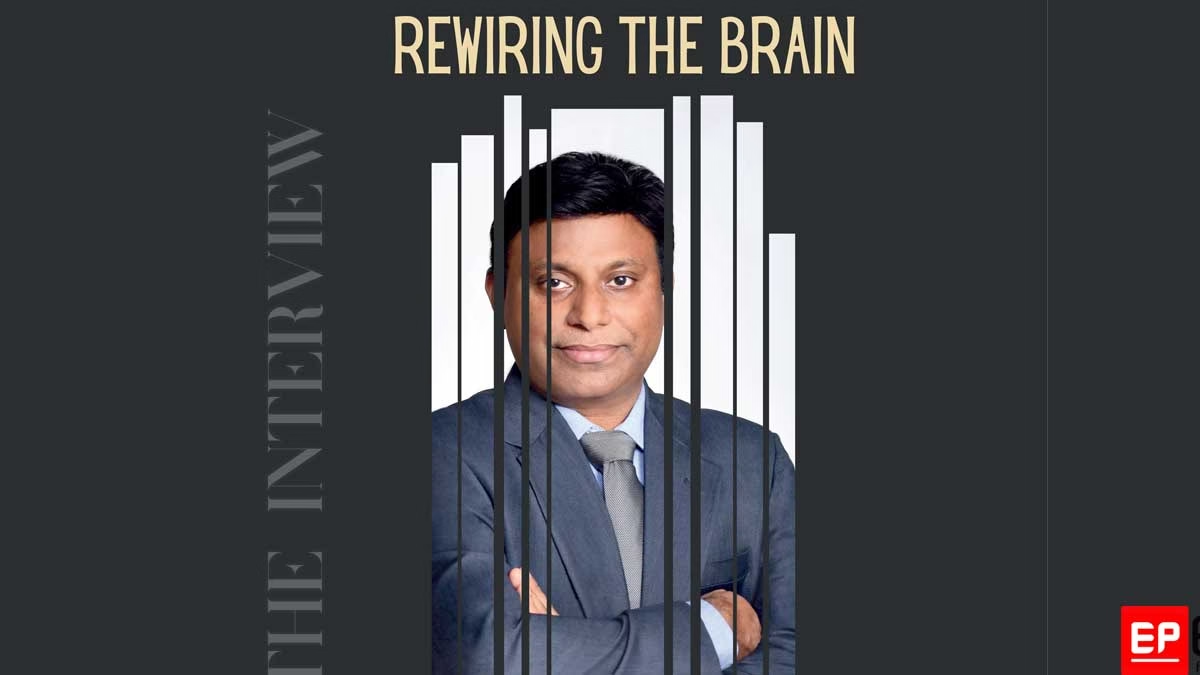
Dr. Saji Kumar Sreedharan is an Associate Professor in the Department of Physiology at the National University of Singapore, where he leads research focused on healthy aging and neurodegeneration. His work has significantly contributed to our understanding of long-term memory storage, the neural basis of memory, and the impact of aging on memory function. A pioneer in exploring the molecular and cellular mechanisms behind memory processes, Dr. Sreedharan’s research utilizes advanced tools like optogenetics and chemogenetics to manipulate and study neural networks. He is particularly interested in finding ways to “rewire” or restore the neural networks to preserve memory function in conditions like Alzheimer’s and mental health disorders.
In an interview with EdPublica’s Dipin Damodharan, Dr. Saji Kumar Sreedharan shares insights into his journey into neuroscience, the challenges and breakthroughs in memory research, and his vision for the future of the field. Meet the man unraveling the mysteries of memory: excerpts from Dr. Saji Kumar Sreedharan’s exploration of the brain’s secrets.

Q: Can you tell us about your journey into the field of neuroscience? What initially sparked your interest in memory research?
I was born and raised in a small village called Chingoli in Alappuzha, near Haripad in Kerala, India. My home was close to a lake, and from a young age, I observed the seasonal changes that happened there. The lake is brackish, meaning saltwater and freshwater exchange every six months. With these changes came noticeable shifts in the plants and animals around the lake. I used to document these changes out of curiosity.
One particular observation was the abundance of a reptile, the skink (arana in local language), in our area. My mother would often warn me to be cautious around skinks, saying that if one bit you, death was certain. At the same time, she also mentioned that skinks never actually bite because they forget their intention within a few seconds. This curious idea sparked my interest, and I asked her why skinks forget everything so quickly. She explained it was due to how their brain is designed and told me that, when I grew up, I could learn more about how the brain stores memories.
Her words stayed with me, and I began reading many books on the brain and memory. This was my first spark of inspiration, and it eventually led me into the field of neuroscience.
Q: Over the past two decades, what specific experiences or challenges have shaped your research focus on long-term memory storage?
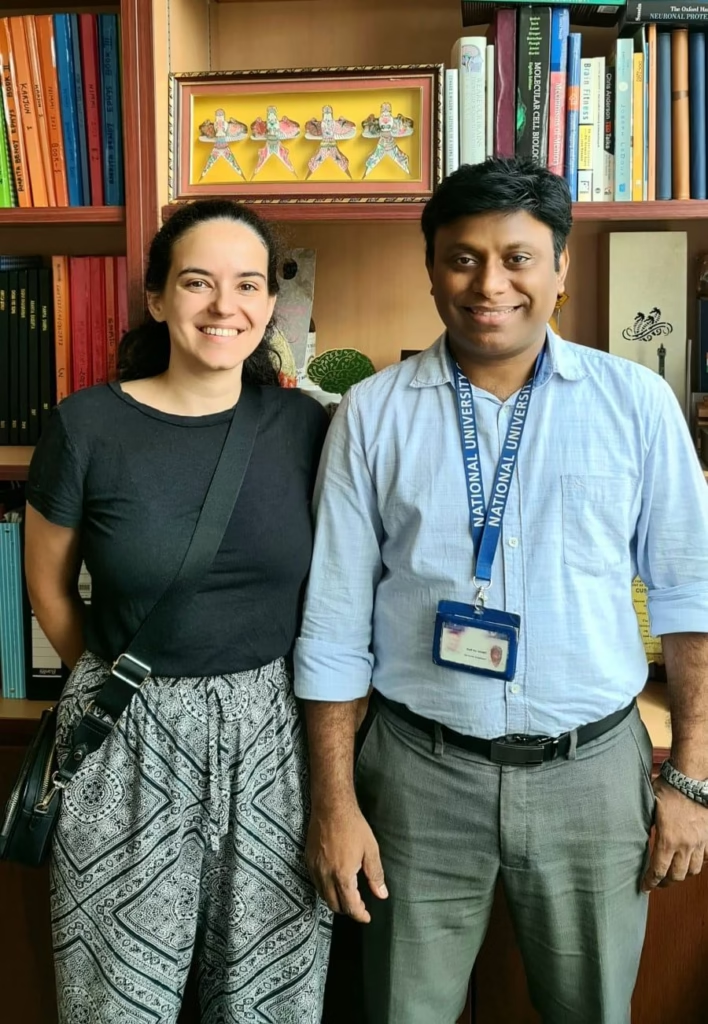
The world is advancing rapidly, thanks to scientific discoveries. These breakthroughs are possible because of the incredible abilities of our brains, where our neural networks fuel imagination and creativity. Neuroscience, in particular, is a field that uses new techniques to explore the basic workings of memory.
In the past two decades, methods like optogenetics and chemogenetics have given neuroscientists powerful tools to study memory. Optogenetics is a technique where scientists use light to turn specific brain cells on or off, which normally wouldn’t respond to light. Chemogenetics, on the other hand, allows scientists to activate or deactivate neurons by adding specific chemicals.
These techniques bring both challenges and opportunities. Now, we can target and control specific areas of the brain. For example, imagine a person with psychological issues receiving optogenetic or chemogenetic stimulation in specific brain regions to help manage their emotions and behavior—this could be incredibly useful. While this is currently being tested in animal models, I hope that, in the near future, it could be used to help humans as well.
Q: Your research has been recognized for significantly advancing our understanding of memory formation. Could you elaborate on your key findings related to the transition from short-term to long-term memory?

I have been working in the field of learning and memory since 2000. My first mentor in neuroscience was Prof. T. Ramakrishna, the founder and first head of the Life Sciences Department at the University of Calicut, India. He was a great motivator, and we often had insightful discussions about learning and memory in the evenings. I had the chance to work with him for my master’s dissertation, which was my first real research experience. Prof. Ramakrishna encouraged me to expand my knowledge further, and he connected me with Dr. Shobi Valeri, a senior researcher in Delhi at the time.
Dr. Shobi soon left for Germany to pursue his Ph.D. and recommended me to DRDO (Defence Research and Development Organisation). Dr. Shobi is now a senior scientist at the National Institute of Nutrition in Hyderabad. I worked at DRDO for a year before moving to Magdeburg, Germany, where I began my Ph.D. under Prof. Juletta Frey. She is well-known in the field of learning and memory, particularly for her research on the cellular mechanisms involved in forming associative memory.

In Prof. Frey’s lab, I discovered how different pieces of information can link together to form long-term memories. This work later inspired the development of many computational models of memory. After completing my Ph.D., I did my postdoctoral studies with Prof. Martin Korte in Braunschweig. There, I discovered how activating neurons before learning could enhance memory formation in the future, a process known as metaplasticity—an exciting and emerging area of neuroscience.
Since 2012, I have been working at the National University of Singapore, where I have focused more on aging, neurodegeneration, and mental health. Using animal models, we have uncovered the role of specific brain regions, like CA2 and CA1, in forming social and spatial memories—both of which are significantly affected by aging, neurodegenerative diseases, and mental health conditions.
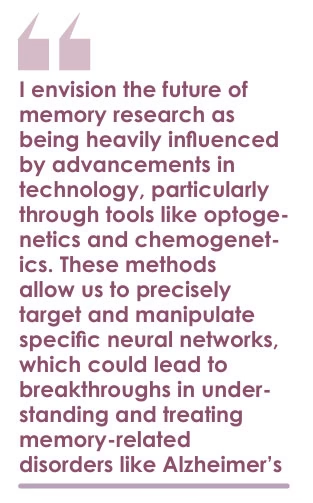
Q: How do you approach the study of molecular mechanisms in memory, and what methodologies do you find most effective?
In my lab, we approach research questions by looking at them from different angles—molecular, cellular, behavioural, and system-level. We choose the most appropriate method depending on the specific question we’re investigating. I can’t say that one method is better than the others because each plays an important role in confirming our findings.
Recently, we’ve been using optogenetic and chemogenetic tools, which allow us to target and stimulate specific neurons. These methods are particularly helpful because they ensure precision in how we activate or deactivate brain cells.
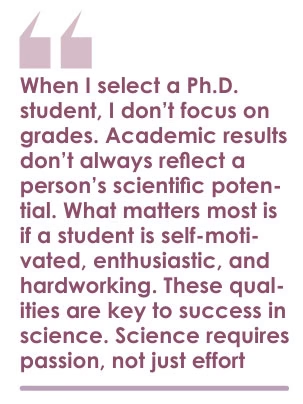
Q: Congratulations on receiving the “Investigator” award from the International Association for the Study of Neurons and Brain Diseases. What does this recognition mean to you personally and professionally?
Thank you for your kind words. As a researcher, I feel proud and happy that my work is being recognized internationally. Professionally, this recognition is a big motivation to continue pursuing my research.
This achievement is not just mine alone—I owe it to all my Ph.D. students, postdocs, and research technicians who have worked with me over the past 20 years. This award is for them as well.
Q: How do you feel your work contributes to the broader scientific community, especially concerning memory impairments related to aging and mental health?
I am the Research Director of the Healthy Longevity Translational Research Programme at the School of Medicine, National University of Singapore, where we have more than 36 scientists working on various aspects of healthy aging. One of our key areas is brain health. Living a long life is not meaningful without a healthy brain.
I am one of the principal investigators studying how neural networks are impaired during aging and neurodegeneration. My wife, Dr. Sheeja Navakkode, is also a neuroscientist, focusing on Alzheimer’s disease using animal models. Neural networks undergo tremendous changes during aging and in various mental health conditions. Our goal is to correct or rewire neural network activity so that memory can be preserved with minimal damage, especially during conditions such as aging, Alzheimer’s Disease, and mental health disorders.

Q: Looking ahead, what are some of the new directions or questions in memory research that you are excited to explore?
Looking ahead, I’m excited to explore several new directions in memory research. One of the key areas of interest is how neural networks in the brain change during aging and neurodegenerative diseases. I’m particularly interested in finding ways to “rewire” or restore these networks to preserve memory function in conditions like Alzheimer’s and mental health disorders. Additionally, using advanced tools like optogenetics and chemogenetics, we can now target specific brain regions with precision, opening up possibilities to understand how different areas of the brain contribute to memory formation and retrieval.
Q: How do you envision the future of memory research, particularly in relation to technology and treatment for memory-related disorders?
I envision the future of memory research as being heavily influenced by advancements in technology, particularly through tools like optogenetics and chemogenetics. These methods allow us to precisely target and manipulate specific neural networks, which could lead to breakthroughs in understanding and treating memory-related disorders like Alzheimer’s. As we continue to explore how neural networks change with aging and neurodegeneration, we can potentially develop targeted therapies to restore or enhance memory function, offering hope for effective treatments in the future.
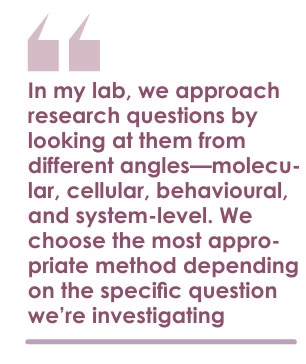
Q: What advice would you give to young researchers who aspire to make significant contributions to the field of neuroscience?
My advice to young researchers is to find a mentor who inspires you and helps nurture your curiosity. A good mentor can shape your scientific journey in ways you might not even realize. Focus on being self-motivated, enthusiastic, and hardworking—these qualities matter more than grades or academic achievements. Science requires passion, not just effort. If you’re truly curious and dedicated, you won’t waste time complaining; you’ll immerse yourself in the work. Always approach your research with the mindset of a lifelong learner, and remember, science is not just a job—it’s a passion that drives discovery and innovation.
Q: Finally, how do you balance the demands of research, teaching, and mentorship in your role as an Associate Professor?
Balancing the demands of research, teaching, and mentorship as an Associate Professor requires careful prioritization and passion for each role. In research, I stay focused on exciting new directions in memory studies and neurodegeneration while managing a team of talented scientists. In teaching, I aim to inspire students by sharing my enthusiasm for neuroscience and guiding them through complex concepts. Mentorship is one of the most fulfilling aspects of my career, where I focus on nurturing curiosity and passion in my students, helping them grow both personally and professionally. Ultimately, I approach all three areas with the mindset of a lifelong learner, driven by a deep love for science and a commitment to making a meaningful impact.
Interviews
Memory Formation Unveiled: An Interview with Sajikumar Sreedharan
“Our goal is to correct or rewire neural network activity so that memory can be preserved with minimal damage, especially during conditions such as aging, Alzheimer’s Disease, and mental health disorders.”

In an enlightening conversation with EdPublica, Sajikumar Sreedharan, Associate Professor at the NUS Yong Loo Lin School of Medicine, Singapore, shares his research insights on memory formation and the transition from short-term to long-term memory. His areas of research include aging and neurodegeneration, the neural basis of long-term memory (LTM), and synaptic tagging and capture (STC) as an elementary mechanism for storing LTM in neural networks. He also explores metaplasticity as a compensatory mechanism for improving memory in neural networks. With a career spanning over two decades, Prof. Sreedharan discusses his key findings, innovative methodologies, and the significance of receiving the “Investigator” award from the International Association for the Study of Neurons and Brain Diseases. Join us as he reflects on his journey and the collaborative spirit that drives his research.
Edited Excerpts:
Your research has been recognized for significantly advancing our understanding of memory formation. Could you elaborate on your key findings related to the transition from short-term to long-term memory?
I have been working in the field of learning and memory since 2000. My first mentor in neuroscience was Prof. T. Ramakrishna, the founder and first head of the Life Sciences Department at the University of Calicut, Kerala, India. He was a great motivator, and we often had insightful discussions about learning and memory in the evenings. I had the chance to work with him for my master’s dissertation, which was my first real research experience. Prof. Ramakrishna encouraged me to expand my knowledge further, and he connected me with Dr. Shobi Valeri, a senior researcher in Delhi at the time.
Dr. Shobi soon left for Germany to pursue his Ph.D. and recommended me to DRDO (Defence Research and Development Organisation). Dr. Shobi is now a senior scientist at the National Institute of Nutrition in Hyderabad. I worked at DRDO for a year before moving to Magdeburg, Germany, where I began my Ph.D. under Prof. Juletta Frey. She is well-known in the field of learning and memory, particularly for her research on the cellular mechanisms involved in forming associative memory.
In Prof. Frey’s lab, I discovered how different pieces of information can link together to form long-term memories. This work later inspired the development of many computational models of memory. After completing my Ph.D., I did my postdoctoral studies with Prof. Martin Korte in Braunschweig. There, I discovered how activating neurons before learning could enhance memory formation in the future, a process known as metaplasticity—an exciting and emerging area of neuroscience.
“Using animal models, we have uncovered the role of specific brain regions, like CA2 and CA1, in forming social and spatial memories—both of which are significantly affected by aging, neurodegenerative diseases, and mental health conditions
Since 2012, I have been working at the National University of Singapore, where I have focused more on aging, neurodegeneration, and mental health. Using animal models, we have uncovered the role of specific brain regions, like CA2 and CA1, in forming social and spatial memories—both of which are significantly affected by aging, neurodegenerative diseases, and mental health conditions.
How do you approach the study of molecular mechanisms in memory, and what methodologies do you find most effective?
In my lab, we approach research questions by examining them from different angles—molecular, cellular, behavioural, and system-level. We choose the most appropriate method depending on the specific question we’re investigating. I can’t say that one method is better than the others because each plays an important role in confirming our findings.
Recently, we’ve been using optogenetic and chemogenetic tools, which allow us to target and stimulate specific neurons. These methods are particularly helpful because they ensure precision in how we activate or deactivate brain cells.

Congrats on receiving the “Investigator” award from the International Association for the Study of Neurons and Brain Diseases. What does this recognition mean to you personally and professionally?
Thank you for your kind words. As a researcher, I feel proud and happy that my work is being recognized internationally. Professionally, this recognition is a significant motivation to continue pursuing my research.
This achievement is not just mine alone—I owe it to all my Ph.D. students, postdocs, and research technicians who have worked with me over the past 20 years. This award is for them as well.
How do you feel your work contributes to the broader scientific community, especially concerning memory impairments related to aging and mental health?
I am the Research Director of the Healthy Longevity Translational Research Programme at the School of Medicine, National University of Singapore, where we have more than 36 scientists working on various aspects of healthy aging. One of our key areas is brain health. Living a long life is not meaningful without a healthy brain.

I am one of the principal investigators studying how neural networks are impaired during aging and neurodegeneration. My wife, Dr. Sheeja Navakkode, is also a neuroscientist, focusing on Alzheimer’s disease using animal models. Neural networks undergo tremendous changes during aging and in various mental health conditions. Our goal is to correct or rewire neural network activity so that memory can be preserved with minimal damage, especially during conditions such as aging, Alzheimer’s Disease, and mental health disorders.
(Read the full interview in the upcoming December 2024 issue of EdPublica magazine.)
Interviews
‘Significant under-representation of black women in academic and research leadership’
Addressing the significant underrepresentation of Black women in senior academic and research leadership roles in the country, Dr Claudia Ntsapi discusses her latest research, the challenges faced by women in science, and more in an interview with EdPublica.

She has drawn recent attention for her ground-breaking research initiative related to neurodegenerative diseases. Her work explores the potential benefits of medicinal plants as supplementary treatments for neurodegenerative diseases such as Alzheimer’s, Parkinson’s, and Huntington’s. In this edition of ‘EdPublica’s Women in Science’ column, we introduce Dr Claudia Ntsapi, a researcher at the University of the Free State (UFS) in South Africa. Addressing the significant underrepresentation of Black women in senior academic and research leadership roles in the country, she discusses her latest research, the challenges faced by women in science, and more in an exclusive interview with EdPublica.
Dr Ntsapi, PhD, is a registered Natural Scientist (Pri. Sci. Nat) with the South African Council for Natural Scientific Professions (SACNASP). She joined the University of the Free State in late 2019 as a lecturer in the Department of Basic Medical Sciences. In addition to her teaching responsibilities, Dr Ntsapi leads the NeuroCancer Research Group, overseeing a multidisciplinary team specialising in cell biology, cell physiology, microscopy, biochemistry, and pharmaceutical methodologies.
Could you share details about your educational journey and current professional role?
I acquired my undergraduate and postgraduate qualifications at Stellenbosch University, completing a Master of Medical Science in Human Genetics in 2015 and a PhD in Physiological Sciences with a specialization in Neurophysiology in 2018. My current job profile is that of a Senior Lecturer at the University of the Free State’s Faculty of Health Sciences, within the School of Biomedical Sciences, Department of Basic Medical Sciences. In this role, I occupy administrative, academic, research, and leadership positions at both faculty and institutional levels.
“I admired professionals in lab coats and their selfless passion for finding answers and solutions to health-related conditions that remain clinical challenges using scientific methods and evidence
What sparked your interest in pursuing the Sciences, and what were your career aspirations?
As a high school learner, my academic strengths and interests were in chemistry, math, and biological sciences. While I was initially unsure about the exact career field I wanted to pursue, I was inherently curious and fascinated by professionals working in laboratories. I was a huge fan of TV series such as CSI: Crime Scene Investigation, which follows a team of forensic investigators solving crimes using scientific methods and evidence, and Numbers, which combined crime-solving with mathematics. These shows inspired me to aspire to a field reminiscent of what I witnessed in these series. I admired professionals in lab coats and their selfless passion for finding answers and solutions to health-related conditions that remain clinical challenges using scientific methods and evidence. True to my nature as an introvert, I continue to find myself most “at home” when working in a laboratory setting. While I could not have imagined the trajectory that my academic career would take, I am without a doubt in the right profession given my innate curiosity, passion for teaching, skills transfer, and biomedical research.
What do you think about the current status of women in science careers in your country?

Despite the gains in women’s participation in science careers in South Africa, women remain underrepresented in these fields. While there has been significant progress in increasing the participation of women in science-related disciplines, studies have confirmed that men continue to dominate science, technology, engineering, and mathematics (STEM) careers. This gender disparity is further heightened among Black women. Although women represent the majority of young university graduates in South Africa, only 13% of STEM graduates are women, with Black women being significantly underrepresented in higher academic and research leadership positions. This can be attributed to systemic barriers such as gender bias, lack of mentorship, and limited access to resources, which continue to hinder true equality in science careers.
At our institution, the University of the Free State (UFS), there is an increasing commitment to support emerging researchers, especially women, through mentorship and research development opportunities. This is part of our institution’s Vision 130, which aspires to foster excellence in research and increase the impact of our scholars on the broader societal context. I am privileged to be one of the selected candidates in our institution’s Transformation of the Professoriate Mentoring Programme, which aims to grow a critical mass of excellent emerging scholars at the UFS. This programme equips all its candidates with both academic and research mentorship to advance their development towards assuming senior academic and research positions. More importantly, this programme supports candidates in accessing networking and funding opportunities, contributing to their establishment as researchers with the potential to create centres of research excellence in the future. My hope is that those of us who have access to such opportunities can also use our privilege and positions to mentor more women researchers from underrepresented groups in the various fields of science.
“Although women represent the majority of young university graduates in South Africa, only 13% of STEM graduates are women, with Black women being significantly underrepresented in higher academic and research leadership positions
What are your suggestions to improve the participation of more women in science-related careers?
To improve the participation of more women in science-related careers, it is crucial to address the systemic barriers that hinder their progress. This includes creating more mentorship and networking opportunities for women, providing financial support and scholarships for female students in science career fields, and implementing national policies that promote work-life balance and support for working mothers. Additionally, efforts should be made to raise awareness about the contributions of women in science and to challenge stereotypes that discourage girls from pursuing science careers. Encouraging more inclusive and diverse work environments where women feel valued and supported is essential for increasing their participation and retention in science careers. There is also a need for progressive policies that promote the employment of Black women academics in positions of authority in STEM fields. This will ensure the availability of a diversity of women mentors and academics to offer gender-sensitive support to students.
Please tell us about your current research and its impact in the sector?
Our research group is assessing both pharmaceutically uncharacterized and the repurposing of well-known medicinal plants that have been previously reported to improve brain function in aging individuals. While these medicinal plants have shown promise in enhancing brain function in various brain-related conditions, their neuroprotective efficacy against neurodegenerative diseases remains unclear, especially as the disease progresses in severity. This is one of the focus areas of our ongoing research. I am involved in several multidisciplinary projects, collaborating with both national and international research experts from countries such as Denmark, the UK, and various national institutions, as well as colleagues from the University of the Free State. One of the primary goals of our ongoing research projects is to explore the therapeutic potential of underexplored nutraceuticals and indigenous medicinal plants in preserving vulnerable neuronal cell populations using 3D based neuronal cell models.

These models will be developed in collaboration with researchers in the University of the Free State’s School of Clinical Medicine, utilizing the CelVivo ClinoStar 2 System. This cutting-edge technology, mimics ‘animal model-like’, allowing scientists to generate cell-based models that closely resemble in-vivo like conditions. We will specifically focus on the technology’s applications in studying age-related neurodegenerative disorders, such as Alzheimer’s disease. The potential impact of this research is immense, as it may contribute to the development of novel therapeutic strategies for combating the debilitating progression of neurodegenerative diseases, ultimately improving the quality of life for affected individuals and their families.
What is your message to aspiring students who wish to take a career in the sciences?
Pursuing a career in the sciences requires dedication, hard work, relentless effort, and an unwavering commitment to learning and growth. It is a path filled with challenges, but the rewards are immense for those who are passionate about contributing to the betterment of humanity through medical science research. This means working tirelessly to uncover new insights, develop innovative solutions, and share your findings with the world. It means staying committed to your goals, even when faced with setbacks, and always striving to push the boundaries of what is known. Marie Curie once said, “I am among those who think that science has great beauty. A scientist in his laboratory is not only a technician: he is also a child placed before natural phenomena which impress him like a fairy tale.” This sense of wonder and curiosity should be at the heart of your scientific endeavours as an aspirant biomedical researcher. You must be driven by a deep curiosity and a desire to understand the world around you. The journey is not just about personal success but about making a meaningful impact on society. The hard work and perseverance you invest in your studies and research will not only advance your knowledge but also contribute to solving real-world problems and improving the quality of life for others. Lastly, remember that science is a collaborative field.
“Marie Curie once said, “I am among those who think that science has great beauty. A scientist in his laboratory is not only a technician: he is also a child placed before natural phenomena which impress him like a fairy tale.”
Seek out mentors, build networks, stay humble, and be open to learning from others. Your contributions, no matter how small they may seem, are part of a larger puzzle that future generations of researchers will continue to build upon. If you are passionate about making a difference, if you are committed to the relentless pursuit of knowledge, and if you are driven by a desire to contribute to the greater good, then a career in the sciences may be the right path for you. Embrace the journey, stay curious, and never lose sight of the profound impact your work can have on the world.
-

 Society4 months ago
Society4 months agoStarliner crew challenge rhetoric, says they were never “stranded”
-

 Space & Physics3 months ago
Space & Physics3 months agoCould dark energy be a trick played by time?
-

 Earth4 months ago
Earth4 months agoHow IIT Kanpur is Paving the Way for a Solar-Powered Future in India’s Energy Transition
-

 Space & Physics3 months ago
Space & Physics3 months agoSunita Williams aged less in space due to time dilation
-

 Learning & Teaching4 months ago
Learning & Teaching4 months agoCanine Cognitive Abilities: Memory, Intelligence, and Human Interaction
-

 Earth2 months ago
Earth2 months ago122 Forests, 3.2 Million Trees: How One Man Built the World’s Largest Miyawaki Forest
-

 Women In Science3 months ago
Women In Science3 months agoNeena Gupta: Shaping the Future of Algebraic Geometry
-

 Society5 months ago
Society5 months agoSustainable Farming: The Microgreens Model from Kerala, South India












